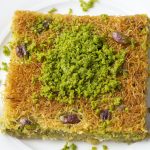Traveling by air can be thrilling yet taxing, especially when it comes to maintaining the health and hydration of your skin during long-haul flights. The contained environment in an airplane, marked by low humidity, can wreak havoc on your skin, leaving it dry and dehydrated. However, with careful planning and a well-thought-out skincare routine, you can help your skin maintain its moisture and radiance even during a long flight. In this article, we will discuss different ways to prevent skin dryness, maintain hydration, and protect your skin from the harsh conditions during air travel.
Understand the Effects of Air Travel on Your Skin
Understanding what happens to your skin during a flight is the first step to combat the adverse effects. The cabin air in an aircraft is often less than 20% humidity, which is much lower than the ideal condition for the skin. As a result, the air will draw moisture from wherever it can, including your skin. This leads to a dry and dull complexion, and can exacerbate conditions like eczema or psoriasis. Furthermore, the exposure to harsh sunlight from the plane window can damage the skin, accelerating signs of aging like fine lines and wrinkles.
A lire également : How Does a Plant-Forward Diet Impact the Severity of Asthma Symptoms?
The potential damage isn’t limited to your face. The skin on your entire body can suffer from dehydration. It’s also important to note that the effects of dry cabin air don’t end once you disembark. It can take considerable time for your skin to rehydrate and regain its normal balance after a long flight.
Incorporating Hydrating Products into Your Travel Skincare Routine
Maintaining an effective skincare routine during your flight can help keep your skin hydrated and healthy. Start by cleansing your skin before your flight. This will remove any dirt and oil that can block the hydrating products you will apply later. Applying a face mask can provide an intense burst of hydration. Opt for sheet masks as they are easy to apply and remove, and typically do not require rinsing.
A lire aussi : How Does Incorporating Matcha Tea into One’s Diet Affect Antioxidant Levels?
After masking, apply a dense, hydrating serum to your face. Key ingredients to look out for in serums include hyaluronic acid and ceramides, which can boost skin hydration. Follow this up with a moisturizer to lock in the moisture.
Remember to hydrate the rest of your body as well. Use a body lotion or a body oil to keep your skin from drying out.
Importance of Hydration from Within
While external hydration is essential, it’s equally important to hydrate from within. Drinking plenty of water before and during your flight can greatly help maintain skin hydration. The dry cabin air will make you lose water faster than usual, so it’s important to replenish frequently.
In-flight beverages like coffee and alcohol can dehydrate your body and skin, so limit your intake or avoid them entirely during the flight. Instead, opt for water, herbal teas, or electrolyte drinks to stay hydrated.
Protecting Your Skin with Sunscreen
Even though you are indoors during a flight, your skin is still at risk of sun damage. The UV radiation is much stronger at higher altitudes, and airplane windows don’t block UVA rays, which can penetrate deep into your skin, causing wrinkles and other signs of aging.
Applying a broad-spectrum sunscreen before your flight and reapplying every two hours can protect your skin from harmful UV rays. Don’t forget to put sunscreen on all exposed skin, including your neck, hands, and any other area that might be exposed to sun during the flight.
Quality Sleep to Help Skin Regeneration
Getting quality sleep during a flight is not always easy, but it can make a significant difference to your skin’s health. Sleep is when your skin goes into repair mode, healing any damage and replenishing moisture. Even a short nap can help your skin stay in good shape.
To make sleeping easier, consider bringing a travel pillow and an eye mask. Use noise-cancelling headphones to block out the ambient noise.
Remember, every skin type is unique and might react differently to the dry air on a plane. Listen to your skin and adjust your in-flight skincare routine accordingly. With these tips, your skin can remain healthy and hydrated, no matter how long your flight is.
Restoring Skin Health Post-Flight
After surviving a long-haul flight, your skin would have been through quite a lot. It’s essential to give it some extra care post-flight to help it recover. Start by cleansing your skin to remove any residue or dirt that may have accumulated during the journey. Use a gentle cleanser that won’t further strip your skin of its natural oils, as it is likely still recovering from the low humidity conditions on the plane.
Next, apply a hydrating face mask to replenish lost moisture. Ingredients like hyaluronic acid and aloe vera in these masks can provide an intense hit of hydration to your skin. Follow this with a rich moisturizer to lock in the hydration and further soothe your skin. Applying a nourishing lip balm can also help heal and moisturize dry lips, a common problem after long flights.
Don’t forget about the rest of your body. Indulge in a long, warm bath after your flight to relax your muscles and hydrate your skin. Use a body lotion or oil packed with nourishing ingredients to rehydrate your skin.
Lastly, make sure to drink plenty of water post-flight to rehydrate your body from within. This process is crucial for the overall health of your skin. Opt for herbal teas or water rather than caffeinated or alcoholic drinks that can further dehydrate you.
Conclusion: Staying Hydrated and Healthy during Air Travel
Long-haul flights can be harsh on your skin, causing dehydration and dryness due to the low humidity in the aircraft cabin. However, with a well-planned skincare routine and proper hydration, it’s possible to keep your skin healthy and radiant during and after your journey.
Start by understanding how air travel affects your skin. This knowledge will help you better prepare for the conditions. Incorporate hydrating products into your travel skincare routine, such as sheet masks, serums with hyaluronic acid, and moisturizers.
Remember, hydration from within is equally important. So, drink plenty of water and avoid dehydrating beverages like coffee and alcohol during your flight. Protect your skin from harsh sunlight radiations with a broad-spectrum sunscreen.
Get some quality sleep during your flight to aid skin regeneration and repair. Post-flight, pamper your skin with an extra care routine to help it recover from the journey.
By following these tips, your skin can stay hydrated, healthy, and radiant, even during long flights. Air travel doesn’t have to wreak havoc on your skin. With a little care and attention, you can ensure your skin remains at its best, no matter the duration or frequency of your journeys.











